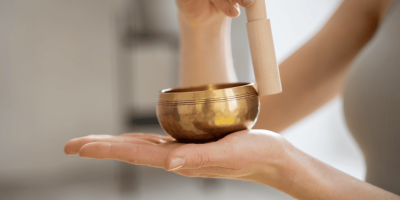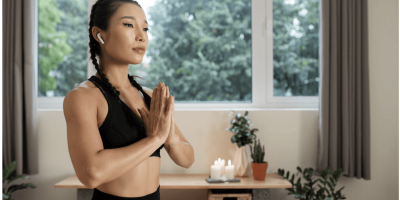
- Mental health should be given equal priority as physical health
- 5 must-haves for your very own mental health first aid kit
- 3 mindfulness apps to consider
Have you ever felt a tightness in your chest, making your heart race at the speed of light while this eerie feeling suffocates you? You might get rushed to the emergency but all your physical tests are normal and that nebuliser seems useless in helping you breathe.
Don’t panic and no, there’s nothing wrong with you. It’s just a sign that your beautiful self requires some help from a mental health professional.
Stress, anxiety, depression, the list goes on about the typical and never-before-heard mental health disorders one can suffer from. Diagnosis followed by counselling or therapy sessions are the first steps in battling a mental health disorder. But what if these are not enough? How do you cope with a panic attack at 3 in the morning?
The answer – a personalised mental health first aid kit.
When you prioritise mental wellbeing, all the hurdles life throws at you become easier to conquer. Here are some suggestions you may consider when personalising your own kit.
-
Headphones

Hazrat Inayat Khan famously said, “Music is the language of the soul”, and we agree. Melodies have the power to heal and soothe our pain at the most unprecedented times. When you feel your mood shifting towards negativity, put on your favourite headphones and let the music heal you. You can listen to your favourite genre or create “mood-specific” playlists on apps like Spotify. We assure you that Ludovico Einaudi’s Nuvole Bianche or even Metallica’s Nothing Else Matters on YouTube can work like magic.
-
A journal and pen

Confiding in a person may seem like a viable option because surely they will give a helpful response right? Unless they are your therapist, it is very difficult to understand someone’s true intentions.
Now you may not have picked up a pen or written in a diary in a while, but journaling is a very effective way of coping with a mental health disorder. Writing your feelings on paper can help put things into perspective and validate your emotions. Let a page on your journal be the outlet for all the bitterness, frustration, pain and angst before you utilise the next page for positivity or even a solutions list.
If you aren’t sure how to write a journal, check out penzu’s guide for writing a journal and get started!
-
Phone number of your “go-to” person

What happens when you cannot afford therapy or have a hard time writing things down? Who do you go to? During instances like these, having a “journal with a heartbeat” or your “go-to” person can help you heal faster.
When you feel things blurring, dial their number and talk to them. Having a person who understands you and is there for you unconditionally can feel like a much-needed breather during times of distress. Sharing your burdens with someone you trust can make you feel lighter and relaxed almost instantaneously. We all need a shoulder to lean on at times, so don’t be afraid to find yours.
-
Running shoes

Physical exercises have been compared to be just as effective as antidepressant tablets prescribed for depression. And research has shown that exercise is not only good for your physical fitness but also your mental wellbeing. So start your morning by embracing nature and going for a run around the local park or your favourite running grounds.
When you put on your running shoes, manifest a mindset of growth and positivity and push yourself to turn this into a habit. It might be hard at first, but never let your willpower falter and run until the fresh morning dew erases all your worries away.
-
Mindfulness apps

The influx of mobile app usage has been very helpful in boosting the development of several apps dedicated to mental health. Whether you need a “pick-me-up”or somebody to talk to or ask for help, google play store and apple app store have a variety of apps. Our top 3 picks are –
- Calm– deemed as the world’s happiest app, Calm is designed to make you feel better via innovative meditation and relaxation techniques. Sleep without worry by downloading this app to be your personal mindfulness buddy.
- Talkspace – an app developed for you to communicate with certified mental health professionals and seek therapy right from the comfort of your home. This private and secure app can help you get actual help for variable costs.
- Shine – this female and BIPOC mental health-focused self-care app is very effective in providing you with motivational messages, meditation guidelines, and connecting to their community. The community comprises people diagnosed with every type of mental health condition so you can learn their stories and start your journey towards self-healing.
Personalising your kits

Having a mental health first aid kit is essential because some bruises require the metaphorical band-aid too. If you feel like your kit needs a little something more or that some of these suggestions don’t completely fit your criteria, try something else.
Personalise your mental health first aid kit to ensure that during your lowest lows you have some preliminary preparation. After all, you have to remember that you can only conquer all the hurdles life throws at you when you are of sound mind too. So my dear reader, prioritise your mental health and start taking care of yourself.









